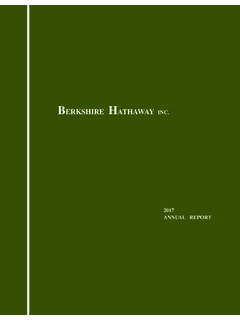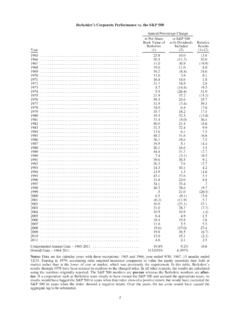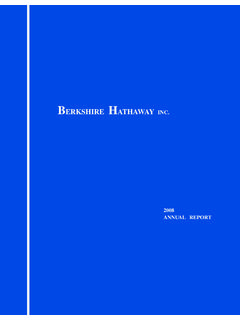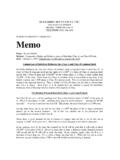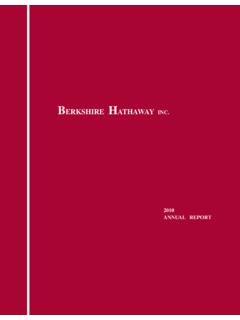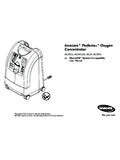Transcription of In June 1996, Berkshire’s Chairman ... - Berkshire …
1 In June 1996, Berkshire s Chairman , Warren E. Buffett, issued a booklet entitled An Owner s manual * to Berkshire s Class A andClass B shareholders. The purpose of the manual was to explain Berkshire s broad economic principles of operation. An updatedversion is reproduced on this and the following BUSINESS PRINCIPLESAt the time of the Blue Chip merger in 1983, I set down 13 owner-related business principles that I thought would help newshareholders understand our managerial approach. As is appropriate for principles, all 13 remain alive and well today, and they arestated here in our form is corporate, our attitude is partnership. Charlie Munger and I think of our shareholders as owner-partners, and of ourselves as managing partners. (Because of the size of our shareholdings we are also, for better or worse,controlling partners.) We do not view the company itself as the ultimate owner of our business assets but instead view thecompany as a conduit through which our shareholders own the and I hope that you do not think of yourself as merely owning a piece of paper whose price wiggles around daily andthat is a candidate for sale when some economic or political event makes you nervous.
2 We hope you instead visualize yourselfas a part owner of a business that you expect to stay with indefinitely, much as you might if you owned a farm or apartmenthouse in partnership with members of your family. For our part, we do not view Berkshire shareholders as faceless membersof an ever-shifting crowd, but rather as co-venturers who have entrusted their funds to us for what may well turn out to be theremainder of their evidence suggests that most Berkshire shareholders have indeed embraced this long-term partnership concept. The annualpercentage turnover in Berkshire s shares is a fraction of that occurring in the stocks of other major American corporations,even when the shares I own are excluded from the effect, our shareholders behave in respect to their Berkshire stock much as Berkshire itself behaves in respect to companiesin which it has an investment. As owners of, say, Coca-Cola or American Express shares, we think of Berkshire as being anon-managing partner in two extraordinary businesses, in which we measure our success by the long-term progress of thecompanies rather than by the month-to-month movements of their stocks.
3 In fact, we would not care in the least if severalyears went by in which there was no trading, or quotation of prices, in the stocks of those companies. If we have good long-term expectations, short-term price changes are meaningless for us except to the extent they offer us an opportunity toincrease our ownership at an attractive line with Berkshire s owner-orientation, most of our directors have a significant portion of their net worth invested in thecompany. We eat our own s family has the majority of its net worth in Berkshire shares; I have more than 98%. In addition, many of my relatives my sisters and cousins, for example keep a huge portion of their net worth in Berkshire and I feel totally comfortable with this eggs-in-one-basket situation because Berkshire itself owns a wide variety oftruly extraordinary businesses. Indeed, we believe that Berkshire is close to being unique in the quality and diversity of thebusinesses in which it owns either a controlling interest or a minority interest of and I cannot promise you results.
4 But we can guarantee that your financial fortunes will move in lockstep with oursfor whatever period of time you elect to be our partner. We have no interest in large salaries or options or other means ofgaining an edge over you. We want to make money only when our partners do and in exactly the same , when I do something dumb, I want you to be able to derive some solace from the fact that my financial suffering isproportional to long-term economic goal (subject to some qualifications mentioned later) is to maximize Berkshire s average annual rateof gain in intrinsic business value on a per-share basis. We do not measure the economic significance or performance ofBerkshire by its size; we measure by per-share progress. We are certain that the rate of per-share progress will diminish inthe future a greatly enlarged capital base will see to that. But we will be disappointed if our rate does not exceed that of theaverage large American preference would be to reach our goal by directly owning a diversified group of businesses that generate cash andconsistently earn above-average returns on capital.
5 Our second choice is to own parts of similar businesses, attainedprimarily through purchases of marketable common stocks by our insurance subsidiaries. The price and availability ofbusinesses and the need for insurance capital determine any given year s capital allocation.* Copyright 1996 By Warren E. BuffettAll Rights Reserved18In recent years we have made a number of acquisitions. Though there will be dry years, we expect to make many more in thedecades to come, and our hope is that they will be large. If these purchases approach the quality of those we have made in thepast, Berkshire will be well challenge for us is to generate ideas as rapidly as we generate cash. In this respect, a depressed stock market is likely topresent us with significant advantages. For one thing, it tends to reduce the prices at which entire companies become availablefor purchase. Second, a depressed market makes it easier for our insurance companies to buy small pieces of wonderfulbusinesses including additional pieces of businesses we already own at attractive prices.
6 And third, some of those samewonderful businesses are consistent buyers of their own shares, which means that they, and we, gain from the cheaper pricesat which they can , Berkshire and its long-term shareholders benefit from a sinking stock market much as a regular purchaser of foodbenefits from declining food prices. So when the market plummets as it will from time to time neither panic nor s good news for of our two-pronged approach to business ownership and because of the limitations of conventional accounting,consolidated reported earnings may reveal relatively little about our true economic performance. Charlie and I, both asowners and managers, virtually ignore such consolidated numbers. However, we will also report to you the earnings of eachmajor business we control, numbers we consider of great importance. These figures, along with other information we willsupply about the individual businesses, should generally aid you in making judgments about state things simply, we try to give you in the annual report the numbers and other information that really matter.
7 Charlieand I pay a great deal of attention to how well our businesses are doing, and we also work to understand the environment inwhich each business is operating. For example, is one of our businesses enjoying an industry tailwind or is it facing aheadwind? Charlie and I need to know exactly which situation prevails and to adjust our expectations accordingly. We willalso pass along our conclusions to time, the large majority of our businesses have exceeded our expectations. But sometimes we have disappointments, andwe will try to be as candid in informing you about those as we are in describing the happier experiences. When we useunconventional measures to chart our progress for instance, you will be reading in our annual reports about insurance float we will try to explain these concepts and why we regard them as important. In other words, we believe in telling you howwe think so that you can evaluate not only Berkshire s businesses but also assess our approach to management and consequences do not influence our operating or capital-allocation decisions.
8 When acquisition costs are similar,we much prefer to purchase $2 of earnings that is not reportable by us under standard accounting principles than to purchase$1 of earnings that is reportable. This is precisely the choice that often faces us since entire businesses (whose earnings willbe fully reportable) frequently sell for double the pro-rata price of small portions (whose earnings will be largelyunreportable). In aggregate and over time, we expect the unreported earnings to be fully reflected in our intrinsic businessvalue through capital have found over time that the undistributed earnings of our investees, in aggregate, have been fully as beneficial toBerkshire as if they had been distributed to us (and therefore had been included in the earnings we officially report). Thispleasant result has occurred because most of our investees are engaged in truly outstanding businesses that can often employincremental capital to great advantage, either by putting it to work in their businesses or by repurchasing their , every capital decision that our investees have made has not benefitted us as shareholders, but overall we havegarnered far more than a dollar of value for each dollar they have retained.
9 We consequently regard look-through earnings asrealistically portraying our yearly gain from use debt sparingly. We will reject interesting opportunities rather than over-leverage our balance sheet. Thisconservatism has penalized our results but it is the only behavior that leaves us comfortable, considering our fiduciaryobligations to policyholders, lenders and the many equity holders who have committed unusually large portions of their networth to our care. (As one of the Indianapolis 500 winners said: To finish first, you must first finish. )The financial calculus that Charlie and I employ would never permit our trading a good night s sleep for a shot at a few extrapercentage points of return. I ve never believed in risking what my family and friends have and need in order to pursue whatthey don t have and don t , Berkshire has access to two low-cost, non-perilous sources of leverage that allow us to safely own far more assetsthan our equity capital alone would permit: deferred taxes and float, the funds of others that our insurance business holdsbecause it receives premiums before needing to pay out losses.
10 Both of these funding sources have grown rapidly and nowtotal about $170 yet, this funding to date has often been cost-free. Deferred tax liabilities bear no interest. And as long as we can breakeven in our insurance underwriting the cost of the float developed from that operation is zero. Neither item, of course, isequity; these are real liabilities. But they are liabilities without covenants or due dates attached to them. In effect, they give usthe benefit of debt an ability to have more assets working for us but saddle us with none of its course, there is no guarantee that we can obtain our float in the future at no cost. But we feel our chances of attaining thatgoal are as good as those of anyone in the insurance business. Not only have we reached the goal in the past (despite a numberof important mistakes by your Chairman ), our 1996 acquisition of GEICO, materially improved our prospects for getting therein the our present configuration we expect additional borrowings to be concentrated in our utilities and railroad businesses, loansthat are non-recourse to Berkshire .

